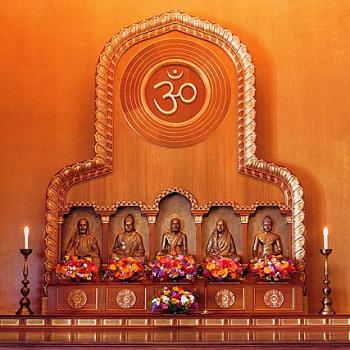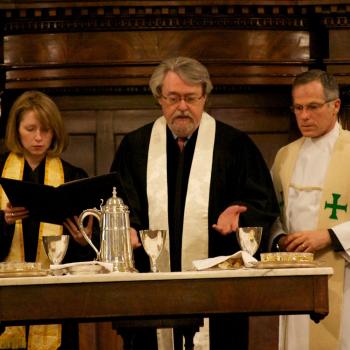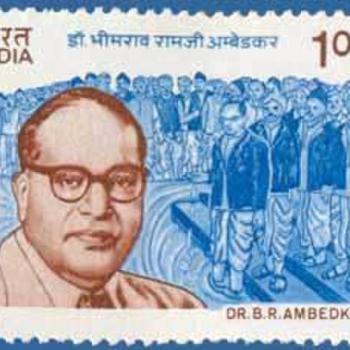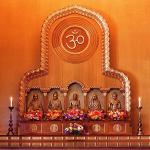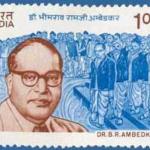Once Upon a Time There Was a Queen Named Love
James Ishmael Ford
The world, and everything within it, are all woven out of stories.
And, so, let me tell you a story.
Once upon a time, a very long time ago, and very far away, a queen named Love learned she was pregnant. The king called together his astrologers and wise ones, and asked them to chart out what would be the fate of this princeling.
They conferred with the stars and ancient texts. They also heard the queen tell that she first knew she was pregnant when she dreamed four angels came and escorted her to a hidden valley, at the edge of limpid pool of water. The angels bathed her, gave her even more beautiful clothing than she had on before, sprinkled perfume on her, and braided flowers into her hair. As she stood there, a great white elephant holding a lotus flower in its truck came to her, circling around her three times, and then magically walked into her right side.
Taking all this information into account they went to the king with their prognostication. There was no doubt, they told him, that this was to be a remarkable child, unprecedented in the history of the world. But, there were two paths this child might grow up to walk. The first was to become the greatest warrior king the world has ever witnessed, unifying all countries under a single banner. The second would be to become a sage, a teacher of a way unspoken of before, a path that would offer liberation from the common bondage of human hurt, a path to the true healing of the human heart. In short the child could become the greatest spiritual teacher in history.
Hoping for the first option while dreading the second, the king decided the only way to guide his child to worldly success was to isolate him from anything that might spark the spiritual quest. And so he created a pleasure palace where the child would be raised to ride and fight and never be confronted with the sadnesses of human life.
And so the young Siddhartha grew into manhood, strong and able, and completely unaware of what the world really was like. At the appropriate time he was presented with a beautiful wife, and they had a child. And it seemed his joy was unmatchable. But, there was a worm in his heart. He knew he was isolated, he knew something existed beyond those walls marking the boundaries of his life.
And so one evening accompanied by a single faithful servant he snuck out into the city. There he witnessed four things. He saw a dreadfully sick person, he witnessed old age for the first time, and he saw a corpse. He was shocked each time as he was told these things were the common fate of humanity. Finally he saw a mendicant, a woman or man, we don’t know, clothed in rags, and sitting in silent meditation. That person seemed to radiate peacefulness.
Haunted he returned to the palace. Those scenes would not leave his dreams, and would rise unbidden at the strangest times during the day. Finally he determined he had to deal with the issue. Again, one evening, he snuck out of the palace, and at the gate to the city exchanged his royal finery with a peasant’s rags.
He undertook years of spiritual discipline. Knowing he needed some guidance he met and submitted to two of the great spiritual teachers at that time. The first was Alara Kalama, a yogi and meditation teacher who guided him to some experience of emptiness. Eventually the teacher declared he had nothing more to teach the young monk, and offered to share the teacher’s seat with him. Not yet feeling the peace he sought, Siddhartha left. His next teacher was Uddaka Ramaputta, another yogi and also a meditation teacher. He initiated Siddhartha into the realms of “immaterial” attainments, realms of mental activity so subtle they seem unconnected to the body. After some time for the second time he was told that he had achieved all that the teacher had to give, and was offered a shared place on the teacher’s seat. And for a second time knowing he had not yet won the great victory, he decided to continue on his way.
Siddhartha then embarked on a path of extreme privation. It’s said that for a time he survived on a single grain of rice a day. Even as he grew more emaciated his persistence attracted other seekers, and soon he had five companions, each striving harder and harder to separate themselves from the clinging of the body. Years.
Finally Siddhartha decided this too was a failed way. All it brought was more suffering. And, so, he accepted a bowl of gruel from a young girl, drank from a stream. When his companions saw this they were appalled at his giving into the urges of his body, and left him.
Siddhartha reflected. As a child he had had a great intimation, it was much like the experiences he had with his meditation teachers. He wondered if he didn’t simply pause at those experiences of deep peace, as his former teachers counseled, but went on, witnessing whatever happened, what might he find?
And so now alone he settled himself under the shade of a tree, sat upright, quieted himself as he had been taught, but then continued, looking. Just watching. Just witnessing.
The forces of delusion saw the time was at hand, a new age was birthing, and they did all they could to stop the former prince bringing it forth. The chief of these was Mara. Mara threw up before his gaze dreams of his old life, of his family, of the offers of kingship and guru status. His fears were paraded in front of him. His longings were put on full display.
But he continued watching. He continued witnessing. Later there were moments of extreme bliss. Joy washed over him. And he continued watching. For forty days and for forty nights he sat. Perhaps he slept a little, but he never lay down. He continued watching. And then it happened. In the early morning as Venus rose in the sky, he looked up at it. And he knew.
Love’s child sang out to the world, “Oh… I see… The world and I awaken together.”
Now, in fact with awakening, real awakening, the troubles do not end. The tempter tried one more time, whispering in Siddhartha’s ear, “You have won your liberation from the endless cycle of hurt! Now, retire from the world, and enjoy the bliss of eternity for the rest of your life, and then enter into the final peace.”
Instead, he thought of his family and of the suffering world, and he got up and started looking for his former companions. As he walked down the path a sage saw him, and his strange countenance, something he’d never witnessed before, and said to Siddhartha, “Who are you? A god?” Siddhartha said, “No.” “Then perhaps an angel?” “No.” Knowing this was no ordinary person, the sage persisted. “What are you?” And Siddhartha said, “I am awake.”
Buddha means awake.




